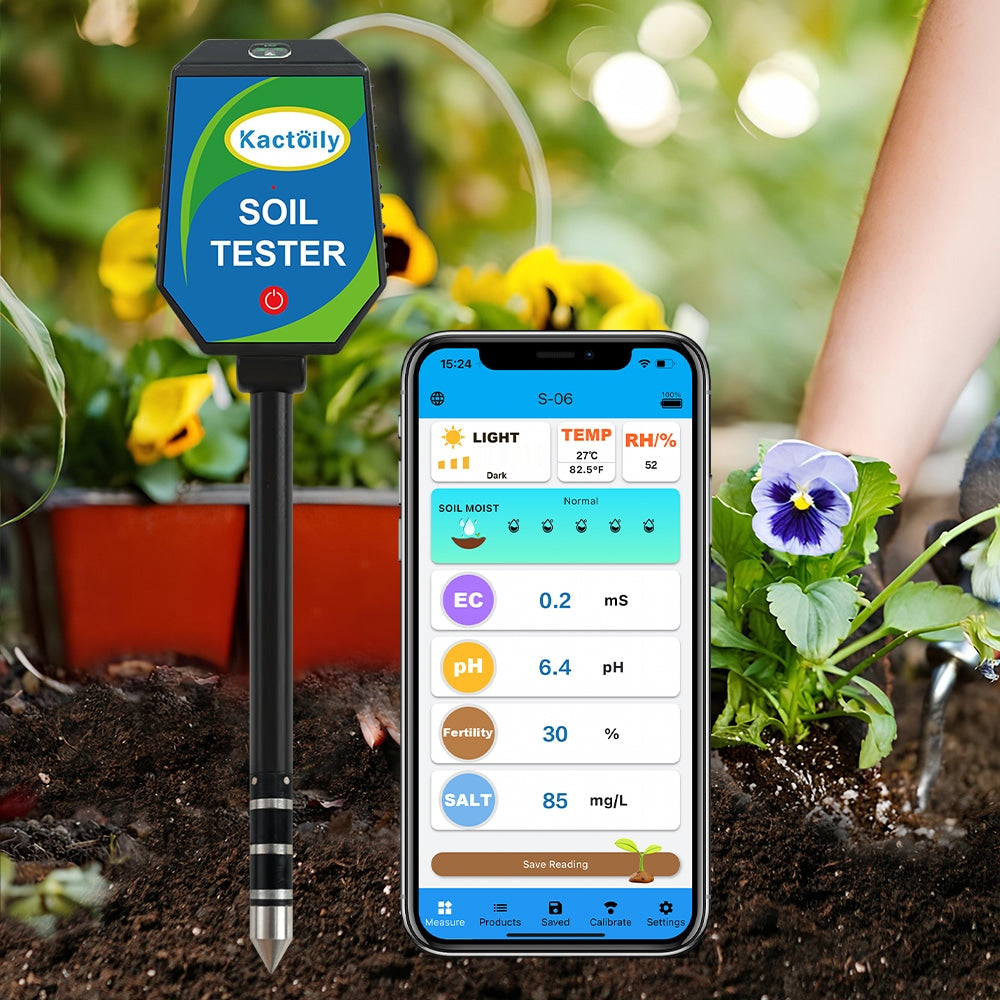
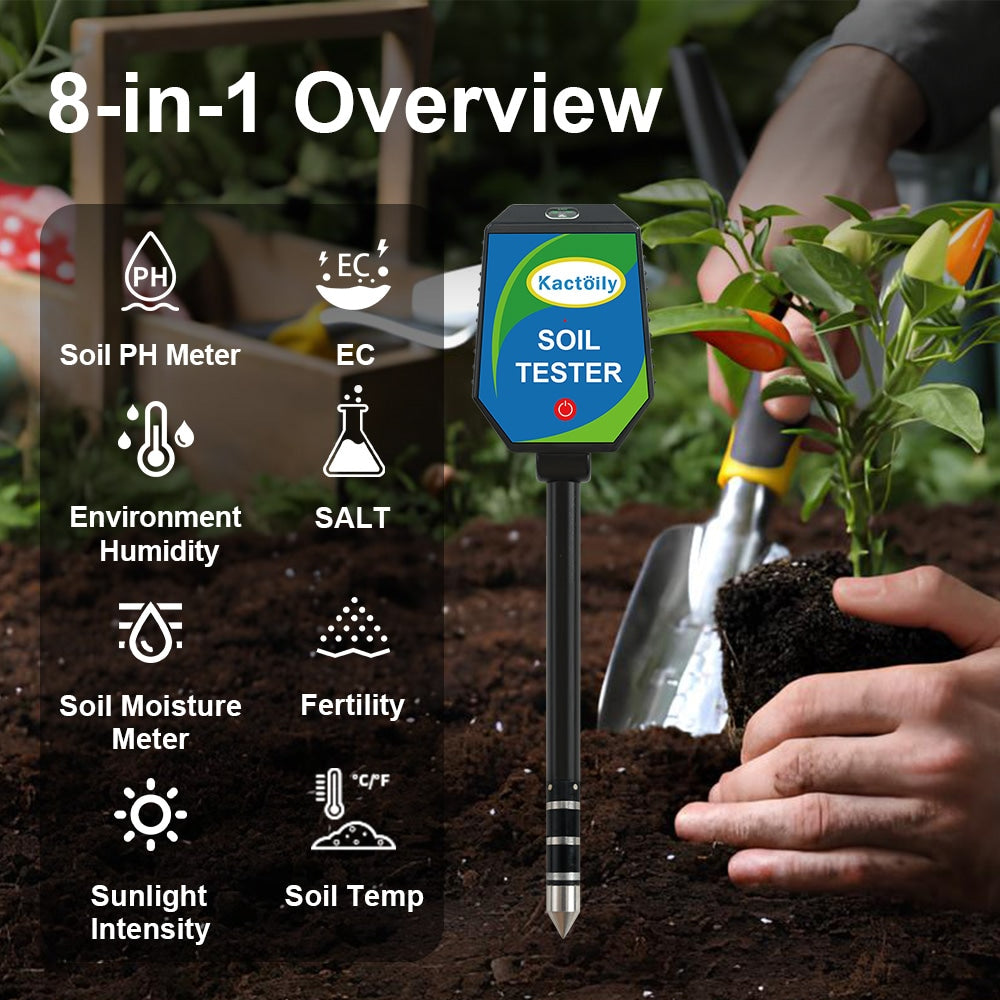
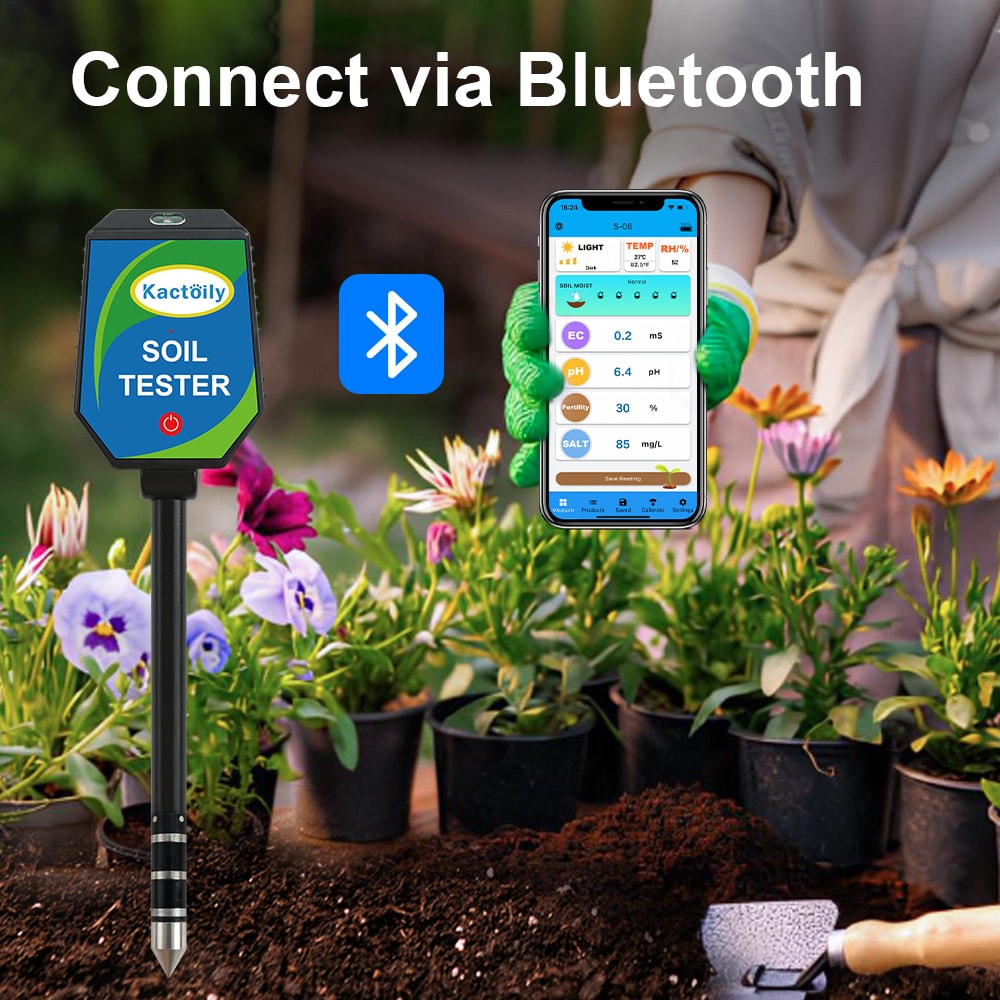
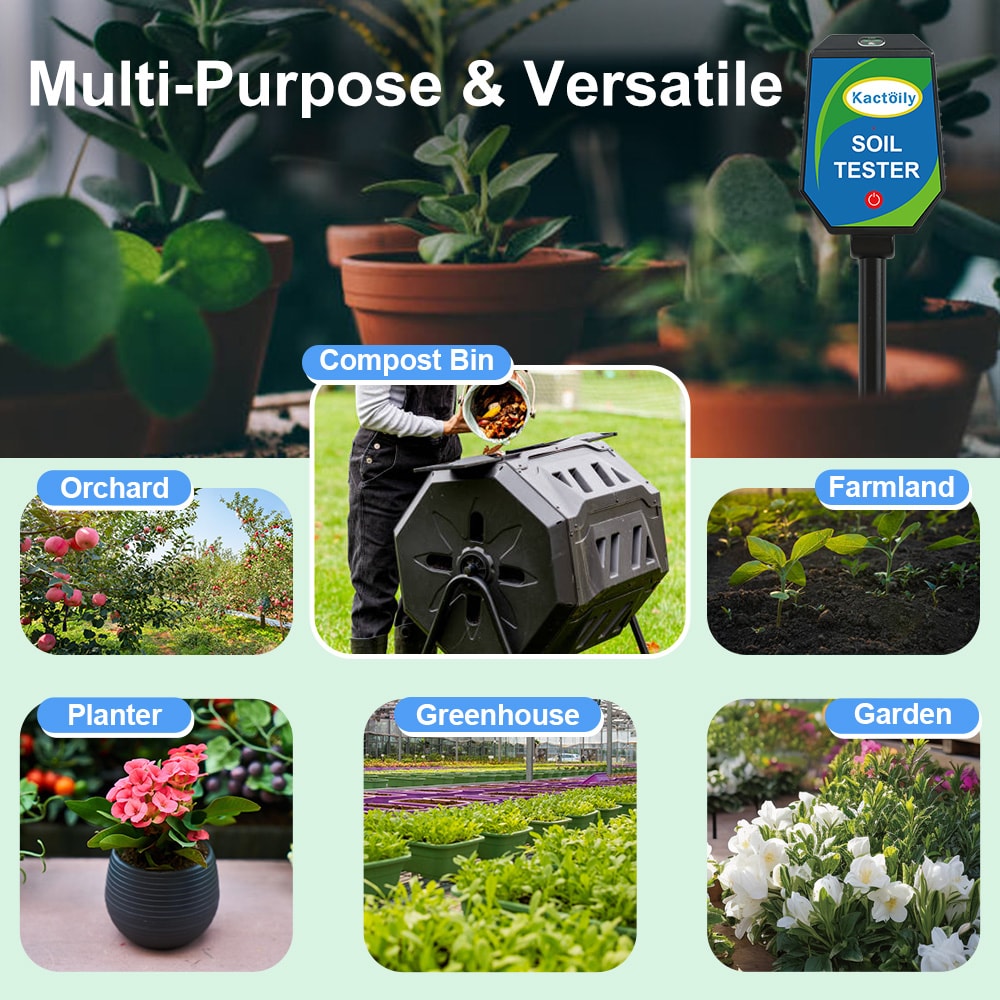
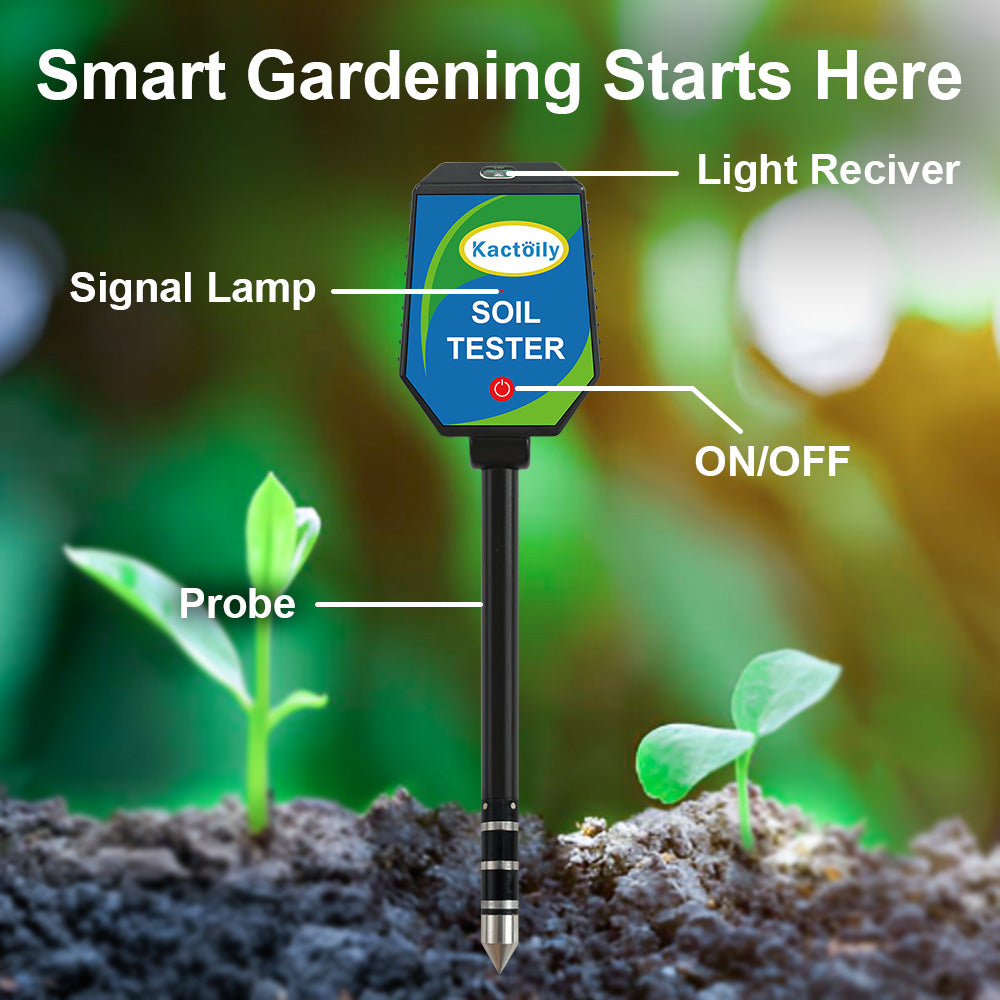
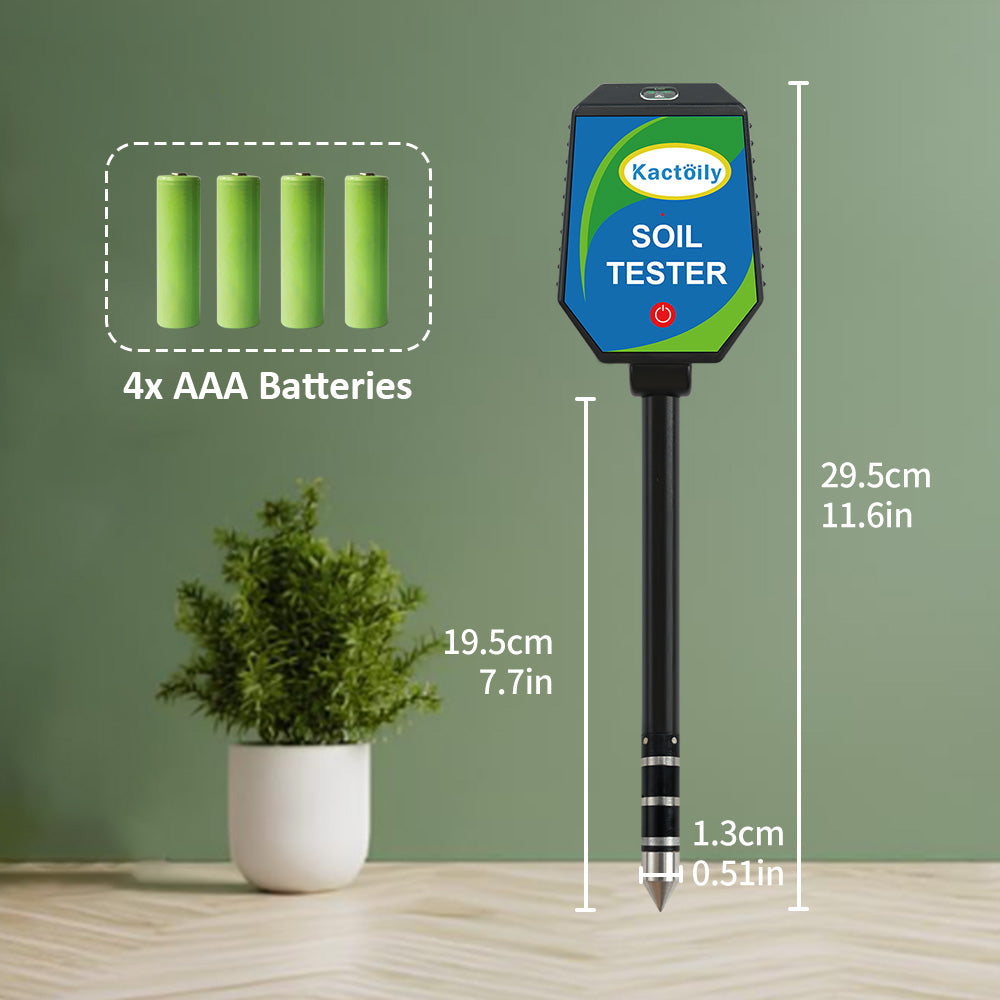
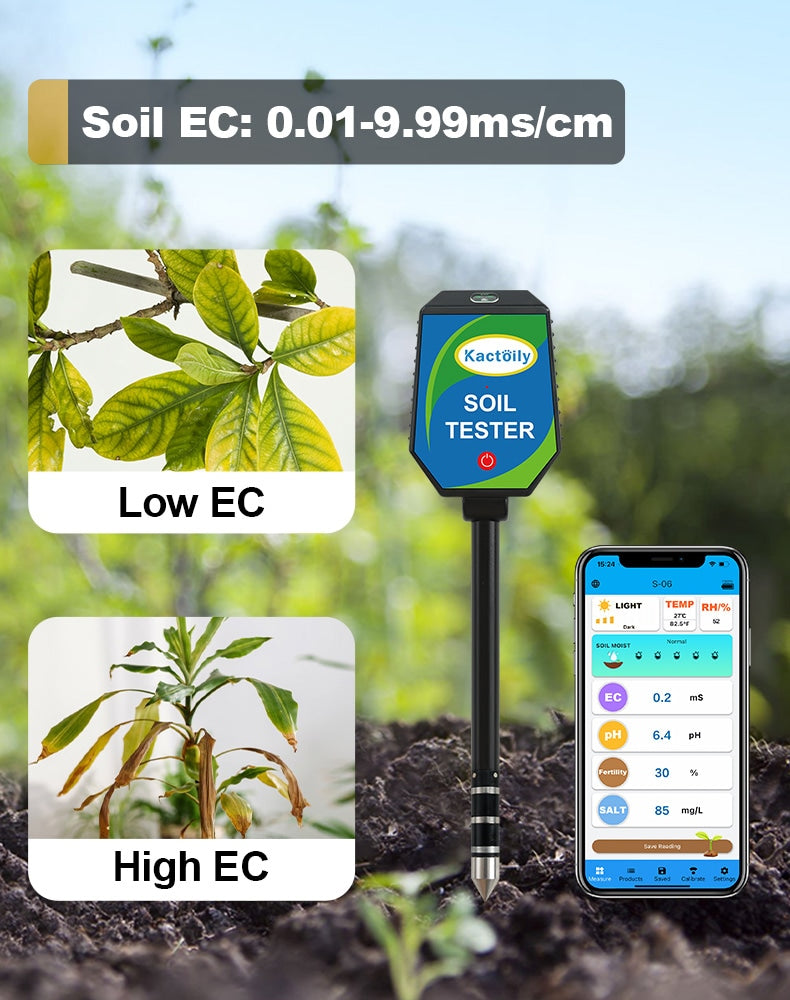
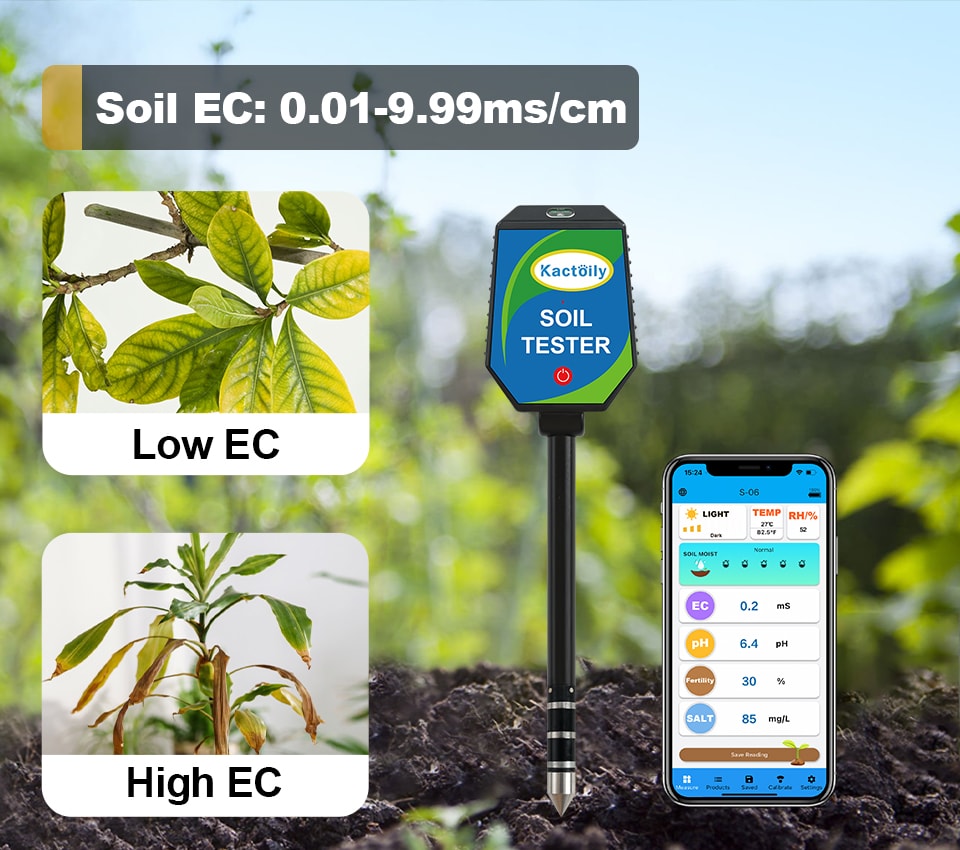
Why Soil EC Matters?
Soil EC (Electrical Conductivity) that's too high or too low can hinder plant growth by affecting nutrient availability.
Different plants require different EC levels depending on their fertilizer needs and growth stage.
Maintaining the right EC helps ensure your plants can absorb nutrients efficiently and grow healthily.
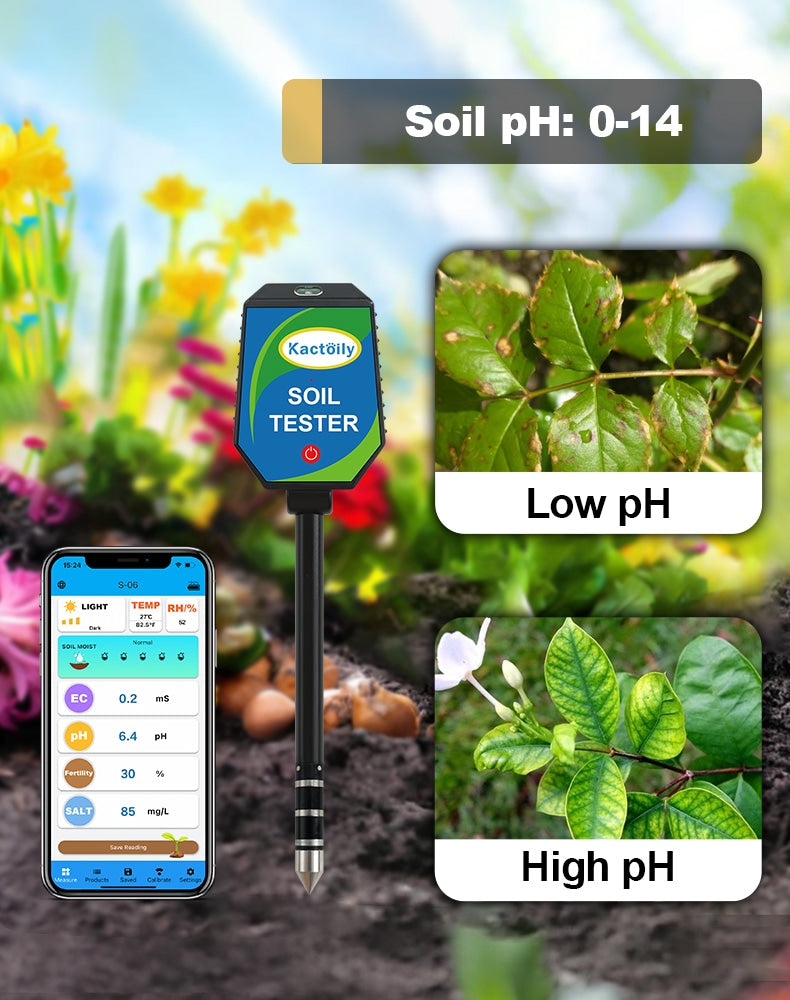
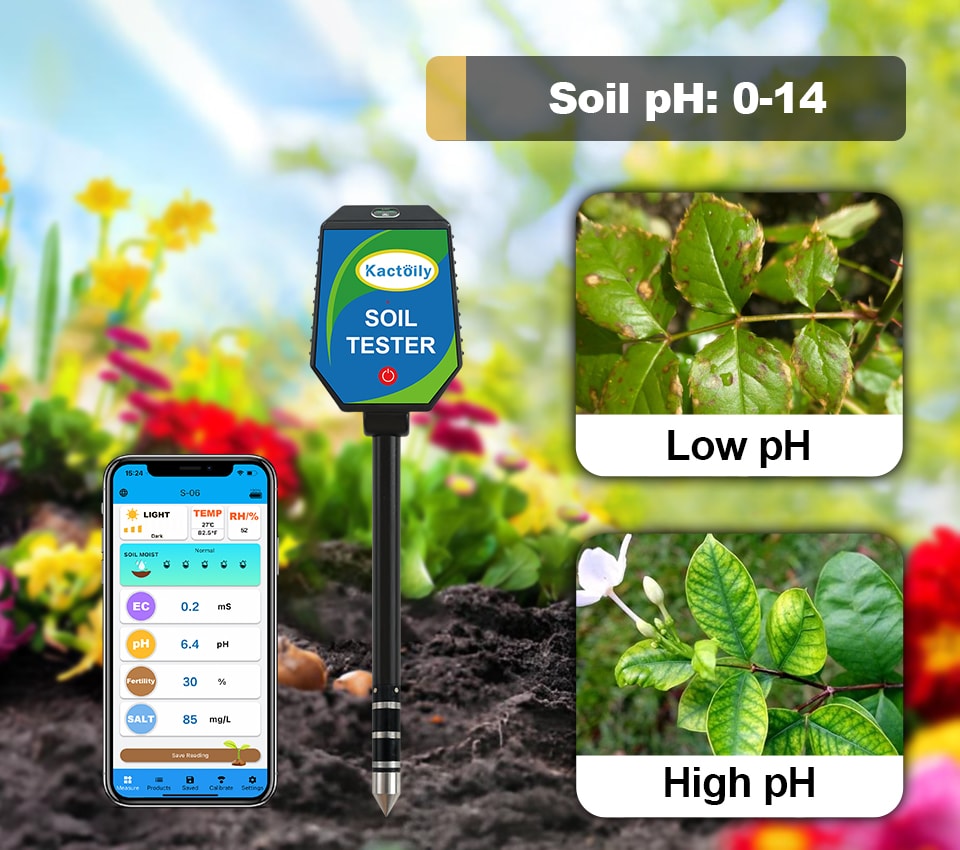
🌱Keep Soil pH in Balance
Soil pH affects how plants absorb essential nutrients.
Too acidic (low pH) or too alkaline (high pH) soils can lock out nutrients, causing deficiencies even when nutrients are present.
Maintaining the right pH range ensures nutrients are available and supports healthy root development.
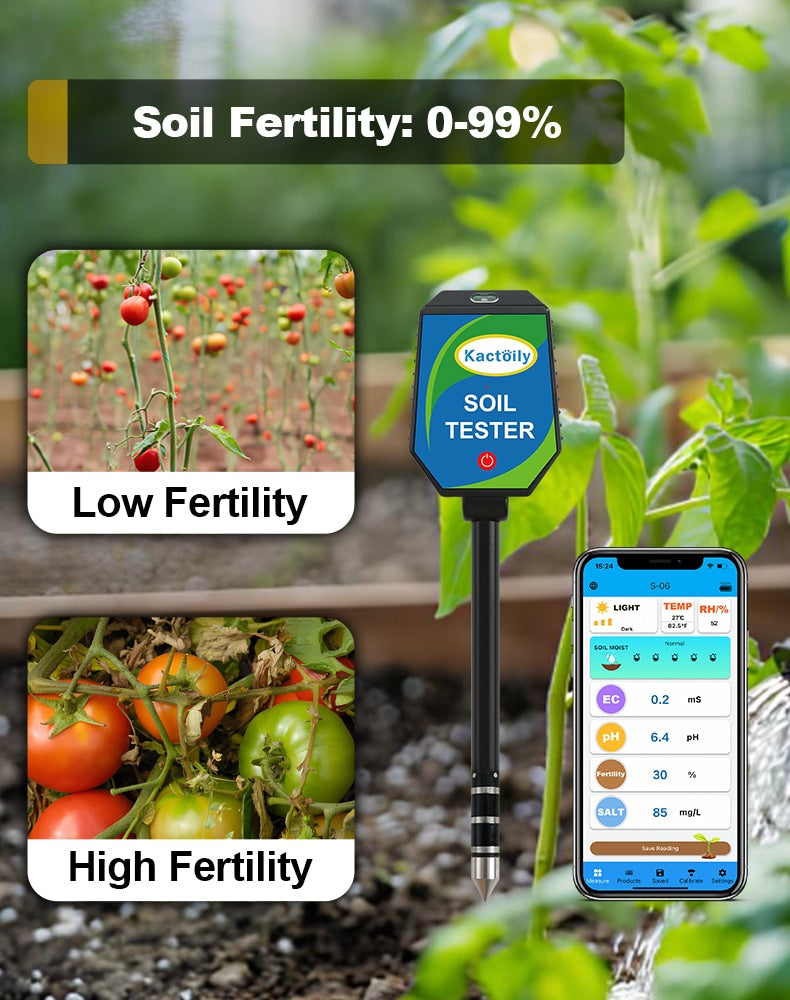
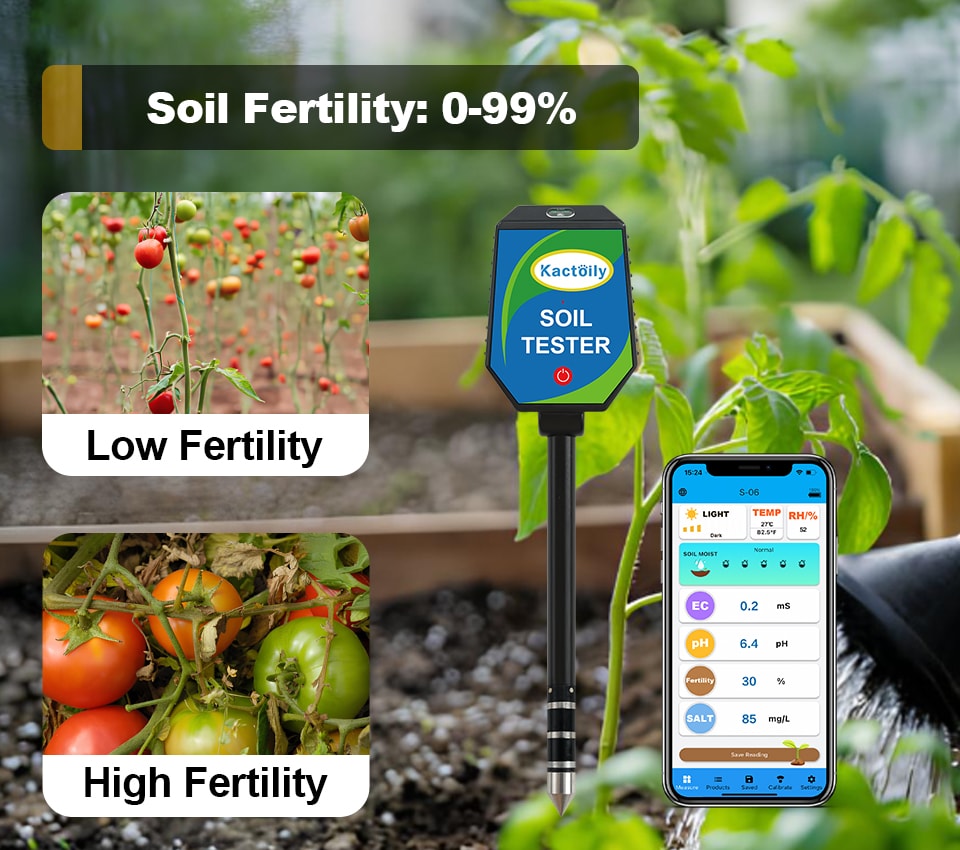
🌿 Understand Your Soil's Fertility
Soil fertility is a key indicator of your soil’s ability to support healthy plant growth. It reflects how well the soil can deliver a balanced supply of essential nutrients throughout each stage of the plant’s life cycle.
Soil fertility needs to be just right for plants to thrive.
If fertility is too high, excess nutrients can harm roots and slow down growth.
If fertility is too low, plants won’t get enough nutrients and may become weak or stunted.
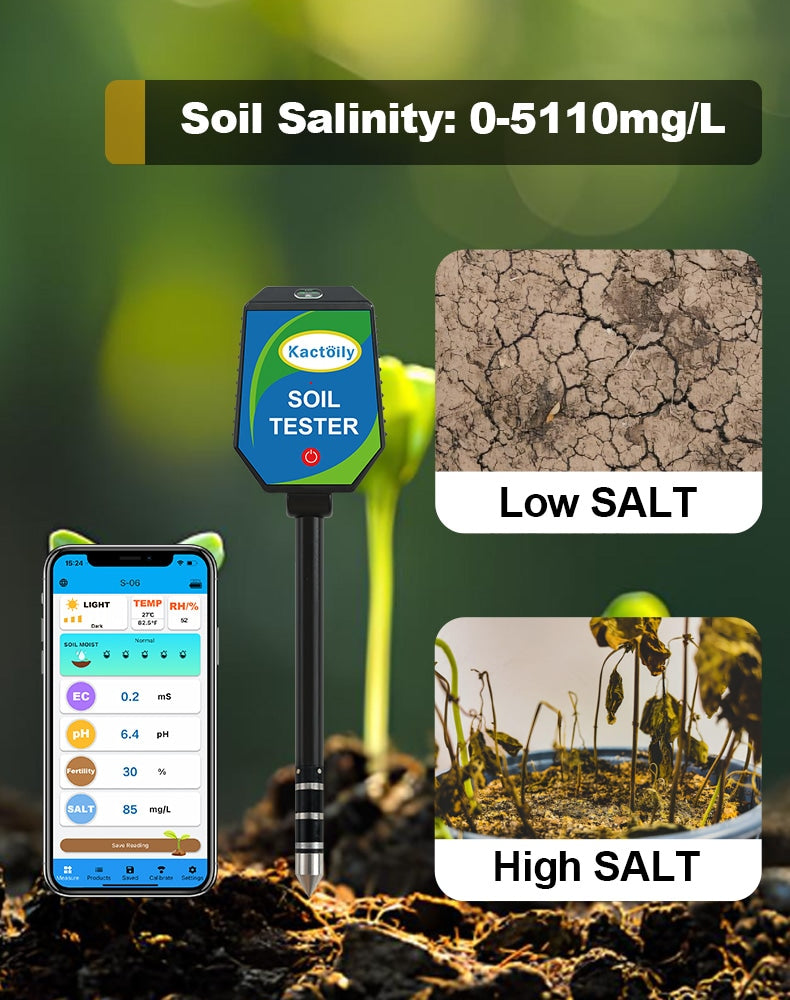
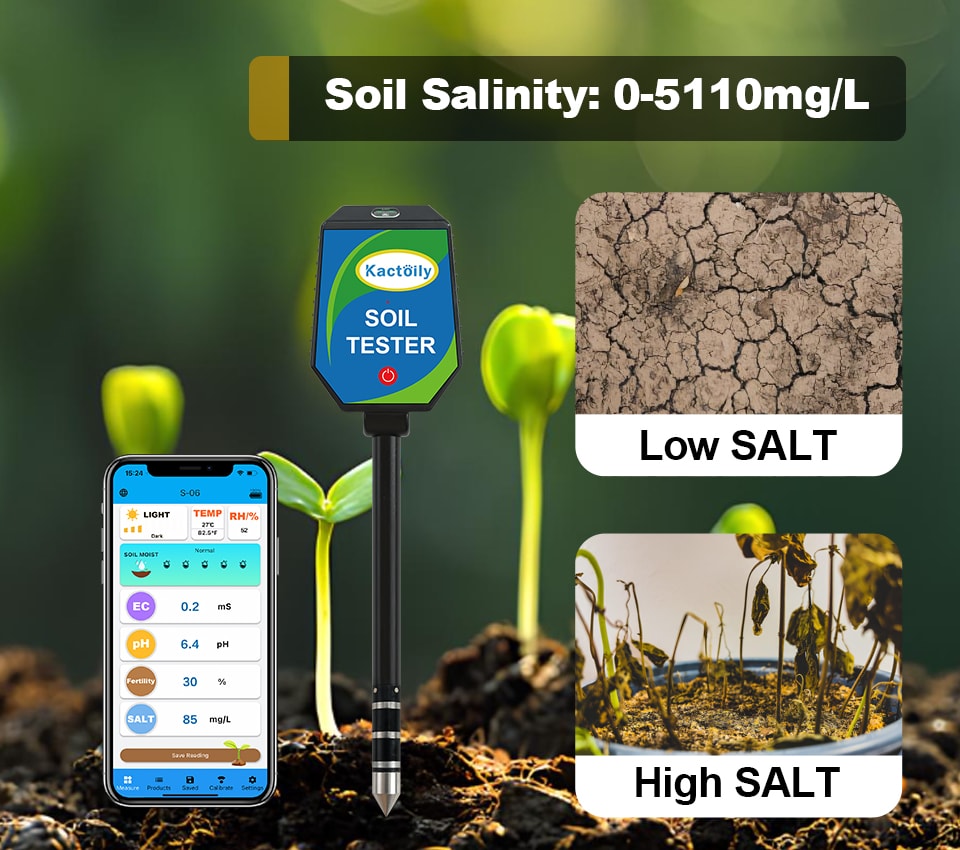
Test Soil Salinity for Healthy Growth
Soil salinity plays a crucial role in plant health. Both high and low salinity levels can harm crop growth:
High salinity can lead to root dehydration, nutrient lockout, and stunted growth.
Low salinity may signal a lack of essential minerals, resulting in poor plant health.
FAQs
What kind of water can I use for calibration?
Please use purified water or distilled water for calibration, not mineral water or natural drinking water.
What is the difference between purified water and mineral water?
Pure water is free of minerals, which ensures that the water is pure during calibration.
Nestle and DASANI purified water etc. labeled as purified water or 100% pure without minerals added can be used for calibration.
*Evian and Perrier are mineral waters and cannot be used for calibration.


















